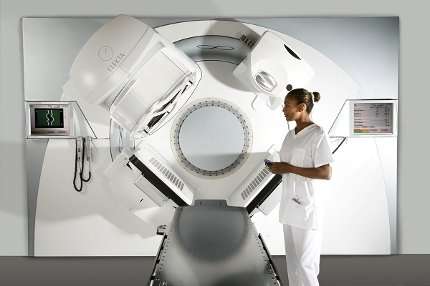- Home
- Editorial
- News
- Practice Guidelines
- Anesthesiology Guidelines
- Cancer Guidelines
- Cardiac Sciences Guidelines
- Critical Care Guidelines
- Dentistry Guidelines
- Dermatology Guidelines
- Diabetes and Endo Guidelines
- Diagnostics Guidelines
- ENT Guidelines
- Featured Practice Guidelines
- Gastroenterology Guidelines
- Geriatrics Guidelines
- Medicine Guidelines
- Nephrology Guidelines
- Neurosciences Guidelines
- Obs and Gynae Guidelines
- Ophthalmology Guidelines
- Orthopaedics Guidelines
- Paediatrics Guidelines
- Psychiatry Guidelines
- Pulmonology Guidelines
- Radiology Guidelines
- Surgery Guidelines
- Urology Guidelines
Novel Manganese-based contrast agent could make MRI safer, finds study

Scientists at the Massachusetts General Hospital (MGH) have developed a new Manganese-based contrast agent (Mn-PyC3A) which could make Magnetic Resonance Imaging (MRI) safer. The effectiveness of this new contrast technology was published in the Journal, Investigative Radiology.
High Contrast Magnetic Resonance Imaging is a widely used diagnostic tool for breast cancer diagnosis. Currently, gadolinium-based contrast agents (GBCAs) are used for this purpose, but recently concerns have been raised about the long-term safety of the gadolinium metal ion.
Results of the study showed that a novel manganese-based agent (Mn-PyC3A) may provide comparable tumor contrast enhancement to the state of the art (GBCAs). The new agent also may be safer than GBCAs, because manganese from Mn-PyC3A is much more quickly and thoroughly cleared from the body than gadolinium from even the 'safest' GBCA.
A key feature of the new agent
Manganese is tightly bound to a chelator which prevents it from interacting with cells or proteins in an adverse way and allows rapid elimination from the body after the imaging exam.
"Without a chelator of sufficient strength, the manganese will be taken up by the liver and remain in the body," says Peter Caravan, PhD, one of the study's authors, co-director of the Institute for Innovation in Imaging (i3) at MGH, and associate professor of radiology at HMS. With a strong chelator, the manganese is distributed throughout the body and can detect the location and size of lesions.
While the first GBCA was approved by the U.S. Food and Drug Administration (FDA) in 1988, there are lingering safety concerns about these agents. In 2007 it was determined that GBCAs can cause nephrogenic systemic fibrosis (NSF) when used in patients with kidney disease. NSF is a rare, but devastating progressive condition that affects multiple organ systems. As a result, three GBCAs can no longer be used in patients with advanced kidney disease, while the use of other GBCAs is avoided. However, avoiding contrast-enhanced Magnetic Resonance Imaging makes it harder to provide accurate diagnoses for these patients.
Also, it's been known for several years that residual gadolinium can stay in the body for a very long time after an imaging procedure. Studies have demonstrated that gadolinium levels in the brain and other organs increase with increased exposure to GBCAs. Concerns around gadolinium retention caused the European Medicines Agency to remove several GBCAs from the market in Europe. "No confirmed side-effects have yet been irrefutably linked to the long-term presence of gadolinium in the body. But, since some people are repeatedly exposed to GBCAs, doctors want to be cautious," says Gale. He and Caravan invented Mn-PyC3A as a gadolinium-free contrast agent to address these various safety concerns. They note that unlike gadolinium, manganese is an essential element that is naturally found in the body.
Derek Erstad, MD, clinical fellow in the Department of Surgery at MGH and lead author on the study points out that "A number of conditions require multiple follow up scans with GBCAs that result in increased gadolinium exposure. For instance, women with a high risk of breast cancer, brain cancer survivors, or patients with relapsing multiple sclerosis may receive frequent GBCA enhanced Magnetic Resonance Imaging scans for surveillance."
For their study, the MGH team compared the efficacy of their novel contrast agent Mn-PyC3A to two state of the art GBCAs to detect tumors in mouse models of breast cancer and metastatic live cancer. They concluded that the tumor contrast enhancement provided by Mn-PyC3A was comparable to the performance of the two GBCAs. They also measured fractional excretion and elimination of Mn-PyC3A in a rat model and compared to the leading GBCA. In that study, MnPyC3A was more completely eliminated than the GBCAs.

Disclaimer: This site is primarily intended for healthcare professionals. Any content/information on this website does not replace the advice of medical and/or health professionals and should not be construed as medical/diagnostic advice/endorsement or prescription. Use of this site is subject to our terms of use, privacy policy, advertisement policy. © 2020 Minerva Medical Treatment Pvt Ltd